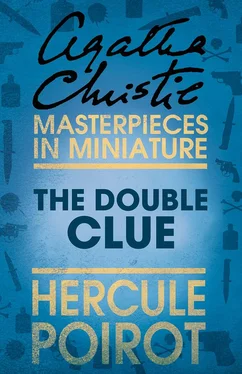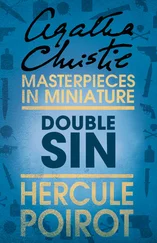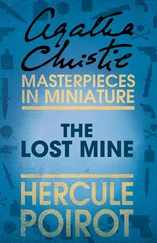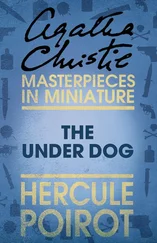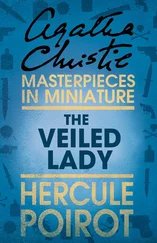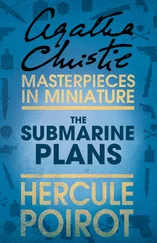The Double Clue
A Short Story
by Agatha Christie

Copyright Copyright The Double Clue Releated Products About the Publisher
Published by HarperCollins Publishers Ltd 1 London Bridge Street London SE1 9GF www.harpercollins.co.uk
Copyright © 1999 Agatha Christie Ltd.
Cover design © HarperCollins Publishers 2013
All rights reserved under International and Pan-American Copyright Conventions. By payment of the required fees, you have been granted the non-exclusive, non-transferable right to access and read the text of this e-book on-screen. No part of this text may be reproduced, transmitted, down-loaded, decompiled, reverse engineered, or stored in or introduced into any information storage and retrieval system, in any form or by any means, whether electronic or mechanical, now known or hereinafter invented, without the express written permission of HarperCollins e-books
Ebook Edition © OCTOBER 2013 ISBN 9780007526673
Version: 2017-04-13
HarperCollinsPublishers has made every reasonable effort to ensure that any picture content and written content in this ebook has been included or removed in accordance with the contractual and technological constraints in operation at the time of publication. .
Cover
Title Page The Double Clue A Short Story by Agatha Christie
Copyright
The Double Clue
Releated Products
About the Publisher
‘The Double Clue’ was first published in The Sketch , 5 December 1923.
‘But above everything – no publicity,’ said Mr Marcus Hardman for perhaps the fourteenth time.
The word publicity occurred throughout his conversation with the regularity of a leitmotif. Mr Hardman was a small man, delicately plump, with exquisitely manicured hands and a plaintive tenor voice. In his way, he was somewhat of a celebrity and the fashionable life was his profession. He was rich, but not remarkably so, and he spent his money zealously in the pursuit of social pleasure. His hobby was collecting. He had the collector’s soul. Old lace, old fans, antique jewellery – nothing crude or modern for Marcus Hardman.
Poirot and I, obeying an urgent summons, had arrived to find the little man writhing in an agony of indecision. Under the circumstances, to call in the police was abhorrent to him. On the other hand, not to call them in was to acquiesce in the loss of some of the gems of his collection. He hit upon Poirot as a compromise.
‘My rubies, Monsieur Poirot, and the emerald necklace said to have belonged to Catherine de’ Medici. Oh, the emerald necklace!’
‘If you will recount to me the circumstances of their disappearance?’ suggested Poirot gently.
‘I am endeavouring to do so. Yesterday afternoon I had a little tea party – quite an informal affair, some half a dozen people or so. I have given one or two of them during the season, and though perhaps I should not say so, they have been quite a success. Some good music – Nacora, the pianist, and Katherine Bird, the Australian contralto – in the big studio. Well, early in the afternoon, I was showing my guests my collection of medieval jewels. I keep them in the small wall safe over there. It is arranged like a cabinet inside, with coloured velvet background, to display the stones. Afterwards we inspected the fans – in the case on the wall. Then we all went to the studio for music. It was not until after everyone had gone that I discovered the safe rifled! I must have failed to shut it properly, and someone had seized the opportunity to denude it of its contents. The rubies, Monsieur Poirot, the emerald necklace – the collection of a lifetime! What would I not give to recover them! But there must be no publicity! You fully understand that, do you not, Monsieur Poirot? My own guests, my personal friends! It would be a horrible scandal!’
‘Who was the last person to leave this room when you went to the studio?’
‘Mr Johnston. You may know him? The South African millionaire. He has just rented the Abbotburys’ house in Park Lane. He lingered behind a few moments, I remember. But surely, oh, surely it could not be he!’
‘Did any of your guests return to this room during the afternoon on any pretext?’
‘I was prepared for that question, Monsieur Poirot. Three of them did so. Countess Vera Rossakoff, Mr Bernard Parker, and Lady Runcorn.’
‘Let us hear about them.’
‘The Countess Rossakoff is a very charming Russian lady, a member of the old régime. She has recently come to this country. She had bade me goodbye, and I was therefore somewhat surprised to find her in this room apparently gazing in rapture at my cabinet of fans. You know, Monsieur Poirot, the more I think of it, the more suspicious it seems to me. Don’t you agree?’
‘Extremely suspicious; but let us hear about the others.’
Конец ознакомительного фрагмента.
Текст предоставлен ООО «ЛитРес».
Прочитайте эту книгу целиком, купив полную легальную версию на ЛитРес.
Безопасно оплатить книгу можно банковской картой Visa, MasterCard, Maestro, со счета мобильного телефона, с платежного терминала, в салоне МТС или Связной, через PayPal, WebMoney, Яндекс.Деньги, QIWI Кошелек, бонусными картами или другим удобным Вам способом.
